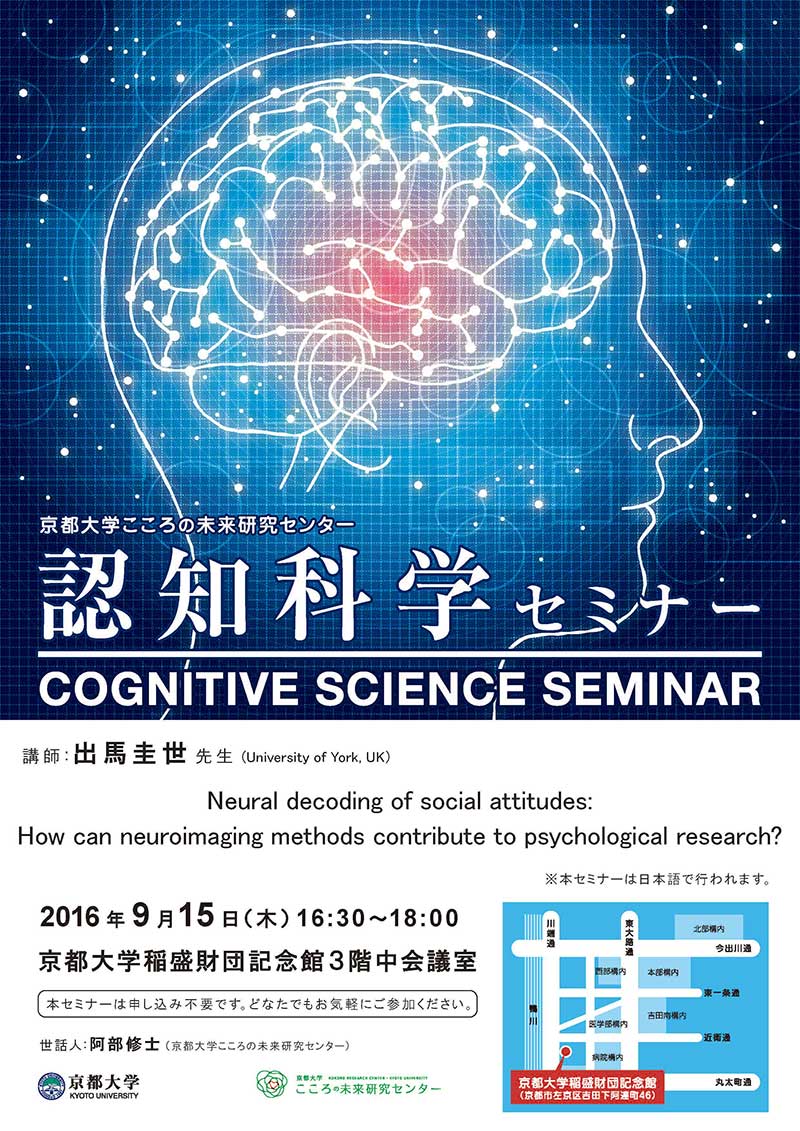このたび、イギリス・ヨーク大学でご活躍の出馬圭世先生が来日されることに伴い、
京都大学でのご講演として「認知科学セミナー」を開催いたしました。
出馬先生はこれまで大変インパクトのある研究成果を報告され、
学会賞も多数受賞されており、現在の社会神経科学分野を牽引されています。
9/15(木)の16:30から、稲盛財団記念館3階中会議室にて行いました。
詳細はこちらをご覧ください。
—以下、当日の講演の抄録です—
※講演は日本語で行われます。
Neural decoding of social attitudes:
How can neuroimaging methods contribute to psychological research?
Keise Izuma
University of York, UK
When functional neuroimaging methods became widely available to psychologists, we hoped that the use of these methods could solve important questions about human minds that would not be possible with behavioral data. However, so far, the utility of neuroimaging methods has been more limited than we hoped, largely because the relation between the mind and the brain turns out to be more complex than what we initially thought (i.e., no simple one-to-one relation between them). In this talk, I will talk about two studies which highlight the utility of multi-voxel pattern analysis (MVPA) of neuroimaging data to solve fundamental questions in social psychology. The first study investigated whether we are able to predict individuals’ attitudes toward other people just by looking at their brain activations (i.e., neural measure of attitude). The second study investigated whether implicit self-esteem (implicit attitude toward the self, as measured by Implicit Association Test [IAT]) is associated with robust neural representations, thus aiming to provide the neural validity of the implicit self-esteem measure and the construct of implicit self-esteem. Our results indicated both social attitude toward other people and implicit self-esteem can be reliably decoded from the brain activations, thus suggesting the potential utility of this method in 1) objectively measuring individual’s attitude and 2) testing the validity of a behavioral measure without relying on other imperfect behavioral measures.

